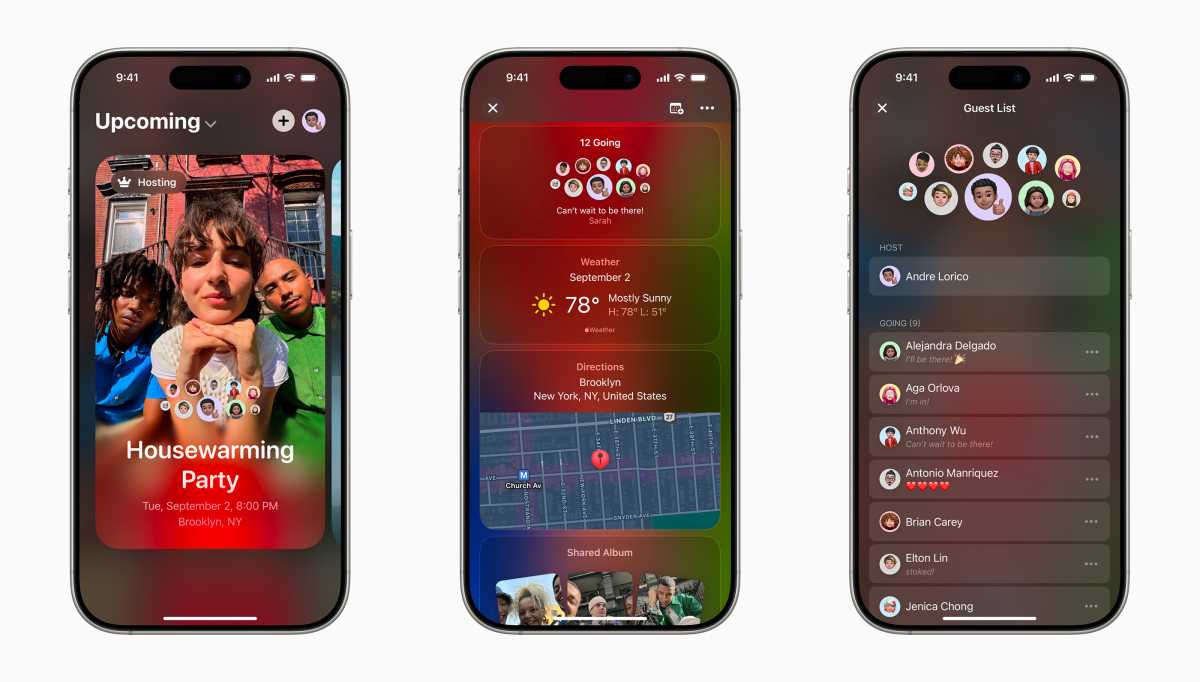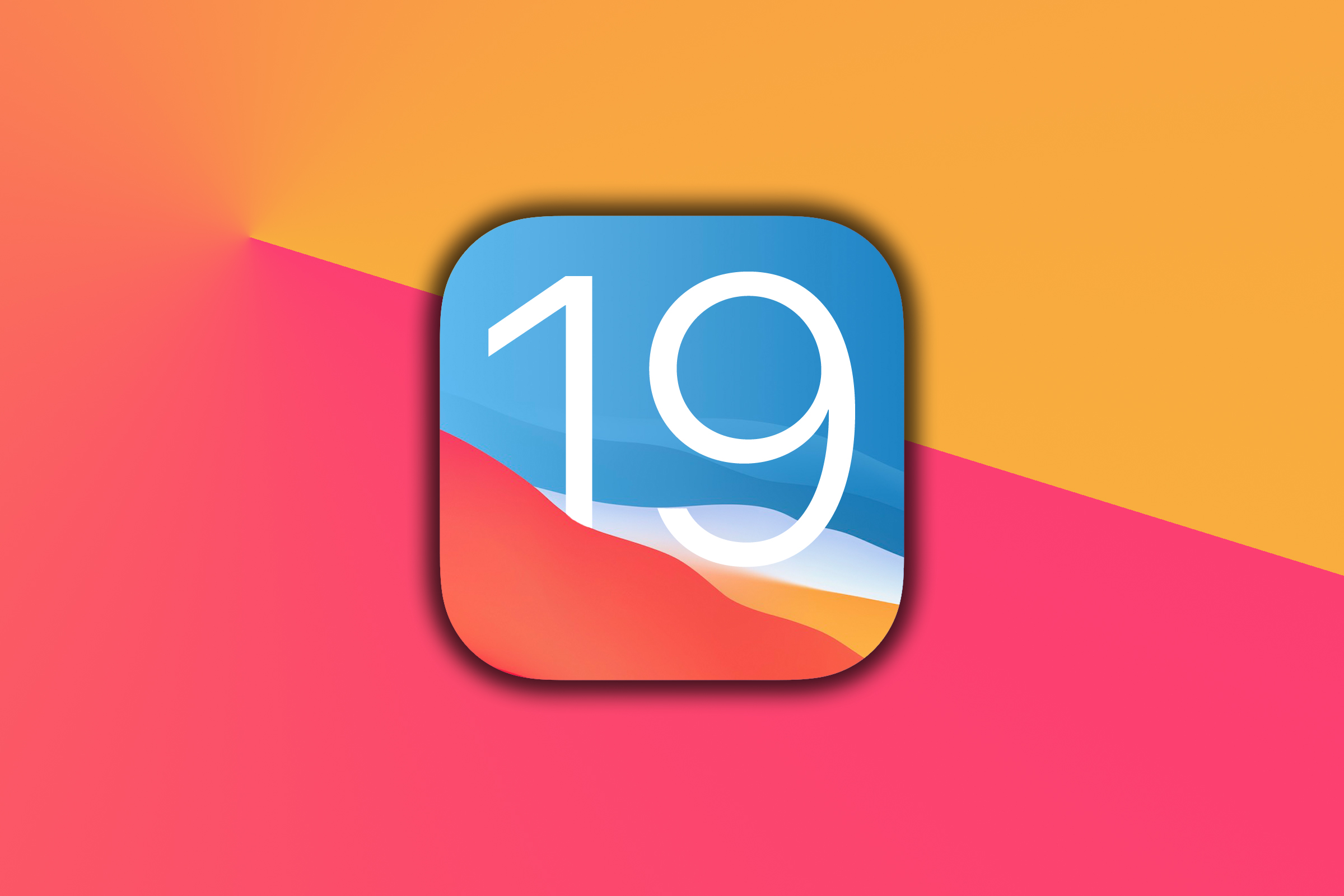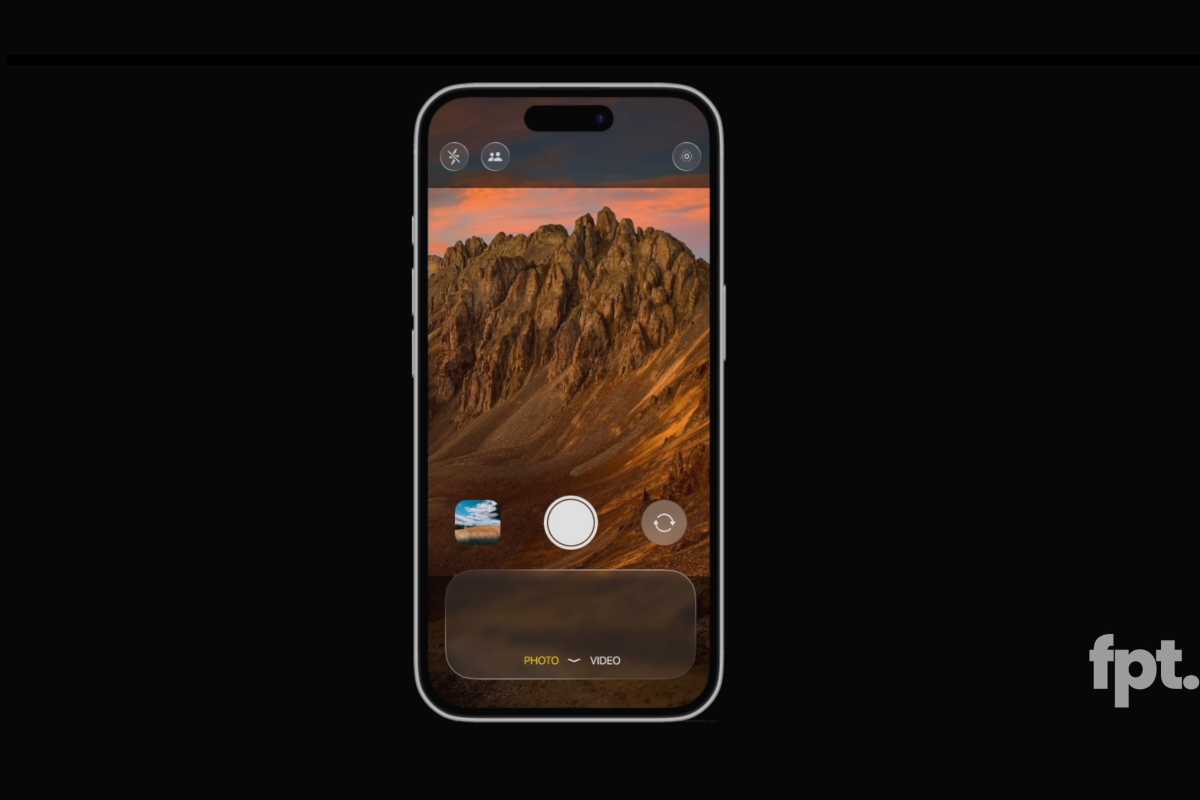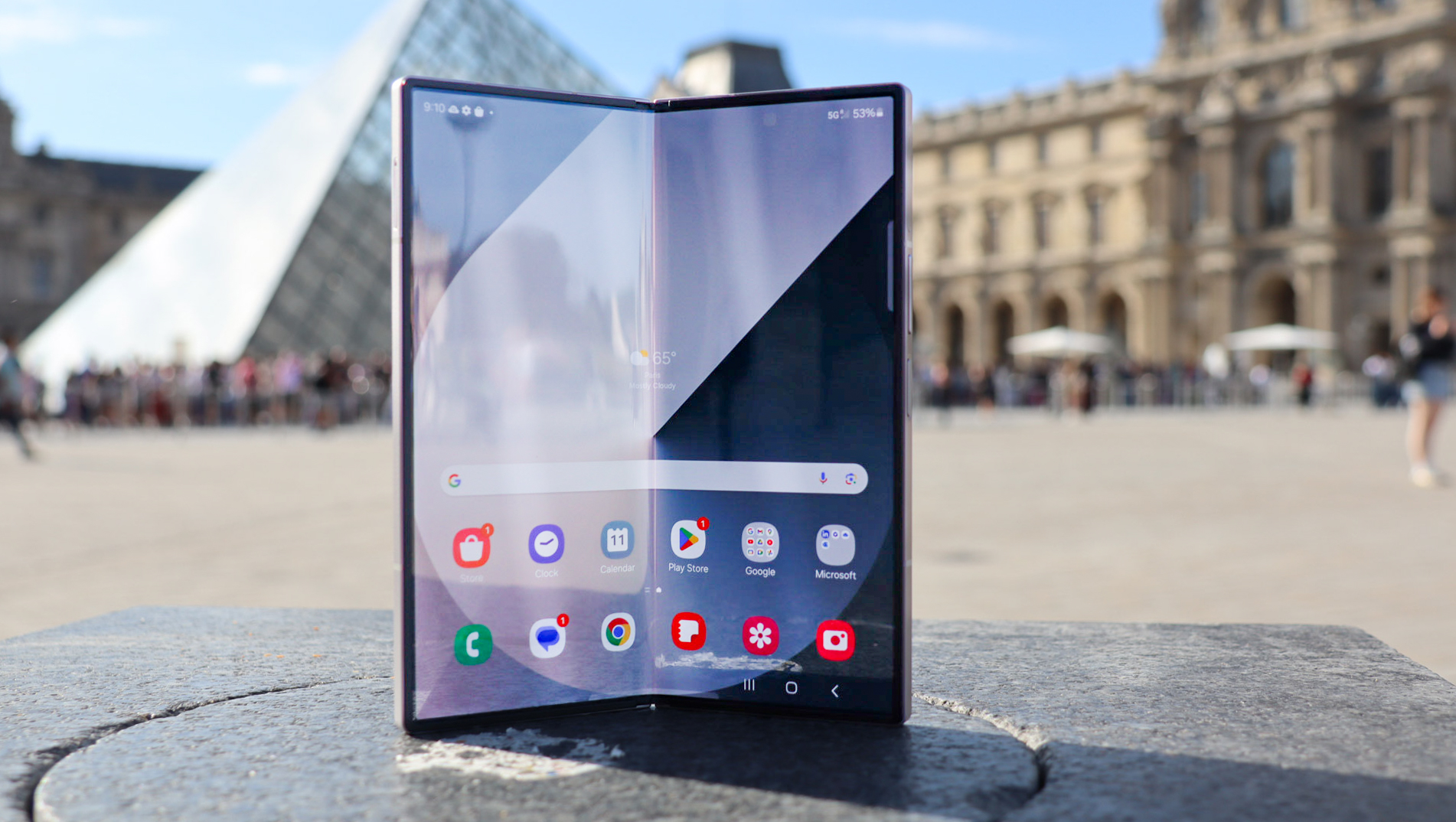Every year, we are introduced to a new version of iOS (alongside Apple’s other operating systems) at the Worldwide Developers Conference in June. At an event on the first day of the conference, Apple will reveal all the new features coming to iPhones with the release of iOS 19 in the fall (probably in mid to late September).
In this article we will run through what we know about the new features coming in iOS 19 in 2025, what phones will get them, and when we expect Apple to release iOS 19.
But you won’t have to wait until September to get the new features because every year Apple runs a beta-testing program where developers and anyone who signs up for the beta can try out the software before it is released following the Apple iPhone Event in September. If you want to join that beta testing program you will find information about how to do so below, including when the first iOS 19 beta will be available.
Updated April 24, 2025: The latest rumors describe big changes to iPadOS when docked, including a menu bar and “Stage Manager 2.0” as well as enhanced iPhone capabilities when plugged in to an external display.
iOS 19 release date: When is iOS 19 coming out?
Apple typically released the new version of iOS to the public on the Monday following the launch of the new iPhone. Based on recent history, we expect iOS 19 to release to the public around the time of the on either Monday, September 15, or Monday, September 22.
Here are the release dates for the most recent versions of iOS:
- iOS 18: Monday, September 16, 2024
- iOS 17: Monday, September 18, 2023
- iOS 16: Monday, September 12, 2022
- iOS 15: Monday, September 20, 2021
iOS 19: Developer and Public Betas
The full version of iOS 19 will launch in September, but you won’t have to wait until then to try the new software out. Apple will run a developer beta as well as a public beta during the summer months, so if you want to try out the new features before they are released to the general public you can do so.
After Apple announces the new version of iOS at WWDC in June it will then release an iOS Beta to developers. This year the WWDC keynote will take place on June 9 so we expect the developer beta will be available that day. The public beta usually comes a month later, around the beginning of July.
Between WWDC and the official release in the fall, Apple will release a string of beta releases, typically eight or so in total. We share details of how to join Apple’s beta software program so you can test the new software as soon as the beta arrives, separately.
Anyone using the beta is encouraged to file bug reports using the included Apple’s Feedback Assistant app so that the company can address them.
If you want to learn more about the beta read: What’s in the latest iOS beta and how to get it.
iOS 19: New features
While Apple hasn’t officially announced iOS 19 yet, it has been hard at work on the big iPhone upgrade for quite a while and some rumors have started to leak out. It looks like iOS 19 will be a bigger change than we’re used to. Based on the most reliable leaks and rumors, here’s what you can expect when it arrives later this year.
All the new features won’t come with that initial release; over the months that follow the initial release more features will be pushed out to iPhones in iOS 19.1, 19.2, and so on.
Major design overhaul
The headline feature of iOS 19 (and iPadOS 19, macOS 15, tvOS 19, watchOS 19…) is said to be a massive change to the user interface. We’re talking about the biggest change since iOS 7, when Apple dropped the skeuomorphic design in favor of flat symbolic icons, changed the lock screen, notifications, and more.
We don’t know what this new interface will look like or what interaction changes it will bring with it, but the rumors say it is loosely based on some of the concepts in the Vision Pro interface. New apps like Apple Invites and Apple Sports may give us some clues to the interface conventions we can expect, as they don’t have have interfaces that fit in with most of Apple’s older apps.

Apple
A key feature of the new interface is supposed to be more consistency across iPhone, iPad, and Mac, along with a major improvement to the productivity features of iPadOS. For example, one rumor says the iPad will get a menu bar when docked to a Magic Keyboard, and that Stage Manager is being overhauled. The iPhone, meanwhile, is said to get a “Stage Manager like” multi-app view when hooked up to an external display.
Siri delays and other Apple Intelligence features
Apple has been having trouble with some of it’s AI efforts, especially the Siri features that were supposed to come in iOS 18.4 (personal context, screen awareness, and in-app actions). These features have been pushed back until next year, which means they should come as an update to iOS 19 in early 2026.
A bigger Siri update, based on large language models (LLMs), that can hold natural conversations with the user, is now expected to come perhaps as part of iOS 20, where it was once thought to be an update to iOS 19.
So Siri will get new capabilities that we were supposed to have by now, and Apple is also said to be expanding the use of Apple Intelligence in more of its apps. We haven’t heard of specific examples, but Apple Intelligence could be used for things like Apple Music playlist generation, suggesting apps in the App Store, or in the Health and Fitness apps.
RCS 3.0
Apple’s current implantation of RCS (Rich Communication Services, used to offer more advanced texting features with Android users) is based on the GSMA Universal Profile version 2.4, which is a little dated. Version 2.7 came out last year, but hasn’t been implemented by Apple yet. It adds support for custom emoji reactions, editing editing and deleting messages, and improved spam handling. RCS 3.0 adds encryption for 1-to-1 messages.
Apple has announced support for end-to-end encrypted RCS messages on all it’s platforms “in future software updates,” so it is likely to add support for all the feature in RCS 2.7 and 3.0 in the iOS 19 cycle.
Home app upgrades
While not specifically mentioned in any of the current leaks or rumors, we find it hard to believe that Apple won’t have some significant improvements to the Home app, HomeKit, and related services in iOS 19.
Why? Well, Apple is expected to release a wave of new smart home products throughout 2025 and 2026. A new Apple smart home hub is first: it’s rumored to be an affordable 7-inch tablet that runs a custom operating system (code-named Pebble). It will support Apple Intelligence, FaceTime, and tie in with other Apple services but isn’t expected to have an App Store.
After that, likely in 2026, Apple is said to be working on a new indoor smart security camera and a smart doorbell that would use Face ID to unlock your door the way it unlocks your phone. Further down the road, a smart home product with a movable screen on a robotic arm has been rumored, all of which will require deep integration with the iPhone and Home app.
The rumored “HomePad” was rumored to launch in the spring of 2025, but was delayed to the fall so it can have an interface that aligns with the big iOS 19 / macOS 15 interface changes. It’s hard to imagine Apple pushing a product like that into the market without some significant changes to the look and feel of the Home app.
Updated Camera app
Jon Prosser claims to have seen the new Camera app in iOS 19, which is completely redesigned with a somewhat visionOS-inspired design. Options are condensed, the viewfinder takes up more space, and there’s lots of transparency.
AirPods live translation
One rumor from Mark Gurman at Bloomberg says iOS 19 is going to get “bolstered translation technology” and, as part of it a live translation feature for AirPods. The AirPods will need a firmware update as well, and it’s not clear which models will support the feature.
Your AirPods would send text to your iPhone where the foreign language would be recognized and translated in the Translate app (or the under-the-hood service that powers it), and translated audio sent back to your AirPods. Other earbuds have had similar features for years, so it will be interesting to see if Apple goes further or has superior functionality.
iOS 19 Compatibility: Which iPhones will work with iOS 19?
We expect iOS 19 to be compatible with every iPhone that supports iOS 18. That includes:
- iPhone 16
- iPhone 16 Plus
- iPhone 16 Pro
- iPhone 16 Pro Max
- iPhone 15
- iPhone 15 Plus
- iPhone 15 Pro
- iPhone 15 Pro Max
- iPhone 14
- iPhone 14 Plus
- iPhone 14 Pro
- iPhone 14 Pro Max
- iPhone 13
- iPhone 13 mini
- iPhone 13 Pro
- iPhone 13 Pro Max
- iPhone 12
- iPhone 12 mini
- iPhone 12 Pro
- iPhone 12 Pro Max
- iPhone 11
- iPhone 11 Pro
- iPhone 11 Pro Max
- iPhone XS
- iPhone XS Max
- iPhone XR
- iPhone SE (2nd generation)
Of course, it will also support the new iPhone 17 models that will launch around the same time, and the new iPhone 16e.
As always, some features won’t be available on older models, as they lack the hardware resources for it. We do think the Apple Intelligence and Siri improvements will be available for all iPhone 16 and later models, though.
Macworld
Every year, we are introduced to a new version of iOS (alongside Apple’s other operating systems) at the Worldwide Developers Conference in June. At an event on the first day of the conference, Apple will reveal all the new features coming to iPhones with the release of iOS 19 in the fall (probably in mid to late September).
In this article we will run through what we know about the new features coming in iOS 19 in 2025, what phones will get them, and when we expect Apple to release iOS 19.
But you won’t have to wait until September to get the new features because every year Apple runs a beta-testing program where developers and anyone who signs up for the beta can try out the software before it is released following the Apple iPhone Event in September. If you want to join that beta testing program you will find information about how to do so below, including when the first iOS 19 beta will be available.
Updated April 24, 2025: The latest rumors describe big changes to iPadOS when docked, including a menu bar and “Stage Manager 2.0” as well as enhanced iPhone capabilities when plugged in to an external display.
iOS 19 release date: When is iOS 19 coming out?
Apple typically released the new version of iOS to the public on the Monday following the launch of the new iPhone. Based on recent history, we expect iOS 19 to release to the public around the time of the on either Monday, September 15, or Monday, September 22.
Here are the release dates for the most recent versions of iOS:
iOS 18: Monday, September 16, 2024
iOS 17: Monday, September 18, 2023
iOS 16: Monday, September 12, 2022
iOS 15: Monday, September 20, 2021
iOS 19: Developer and Public Betas
The full version of iOS 19 will launch in September, but you won’t have to wait until then to try the new software out. Apple will run a developer beta as well as a public beta during the summer months, so if you want to try out the new features before they are released to the general public you can do so.
After Apple announces the new version of iOS at WWDC in June it will then release an iOS Beta to developers. This year the WWDC keynote will take place on June 9 so we expect the developer beta will be available that day. The public beta usually comes a month later, around the beginning of July.
Between WWDC and the official release in the fall, Apple will release a string of beta releases, typically eight or so in total. We share details of how to join Apple’s beta software program so you can test the new software as soon as the beta arrives, separately.
Anyone using the beta is encouraged to file bug reports using the included Apple’s Feedback Assistant app so that the company can address them.
If you want to learn more about the beta read: What’s in the latest iOS beta and how to get it.
iOS 19: New features
While Apple hasn’t officially announced iOS 19 yet, it has been hard at work on the big iPhone upgrade for quite a while and some rumors have started to leak out. It looks like iOS 19 will be a bigger change than we’re used to. Based on the most reliable leaks and rumors, here’s what you can expect when it arrives later this year.
All the new features won’t come with that initial release; over the months that follow the initial release more features will be pushed out to iPhones in iOS 19.1, 19.2, and so on.
Major design overhaul
The headline feature of iOS 19 (and iPadOS 19, macOS 15, tvOS 19, watchOS 19…) is said to be a massive change to the user interface. We’re talking about the biggest change since iOS 7, when Apple dropped the skeuomorphic design in favor of flat symbolic icons, changed the lock screen, notifications, and more.
We don’t know what this new interface will look like or what interaction changes it will bring with it, but the rumors say it is loosely based on some of the concepts in the Vision Pro interface. New apps like Apple Invites and Apple Sports may give us some clues to the interface conventions we can expect, as they don’t have have interfaces that fit in with most of Apple’s older apps.
Apps like Invites and Sports may offer clues to the interface elements we can expect in iOS 19.Apple
A key feature of the new interface is supposed to be more consistency across iPhone, iPad, and Mac, along with a major improvement to the productivity features of iPadOS. For example, one rumor says the iPad will get a menu bar when docked to a Magic Keyboard, and that Stage Manager is being overhauled. The iPhone, meanwhile, is said to get a “Stage Manager like” multi-app view when hooked up to an external display.
Siri delays and other Apple Intelligence features
Apple has been having trouble with some of it’s AI efforts, especially the Siri features that were supposed to come in iOS 18.4 (personal context, screen awareness, and in-app actions). These features have been pushed back until next year, which means they should come as an update to iOS 19 in early 2026.
A bigger Siri update, based on large language models (LLMs), that can hold natural conversations with the user, is now expected to come perhaps as part of iOS 20, where it was once thought to be an update to iOS 19.
So Siri will get new capabilities that we were supposed to have by now, and Apple is also said to be expanding the use of Apple Intelligence in more of its apps. We haven’t heard of specific examples, but Apple Intelligence could be used for things like Apple Music playlist generation, suggesting apps in the App Store, or in the Health and Fitness apps.
RCS 3.0
Apple’s current implantation of RCS (Rich Communication Services, used to offer more advanced texting features with Android users) is based on the GSMA Universal Profile version 2.4, which is a little dated. Version 2.7 came out last year, but hasn’t been implemented by Apple yet. It adds support for custom emoji reactions, editing editing and deleting messages, and improved spam handling. RCS 3.0 adds encryption for 1-to-1 messages.
Apple has announced support for end-to-end encrypted RCS messages on all it’s platforms “in future software updates,” so it is likely to add support for all the feature in RCS 2.7 and 3.0 in the iOS 19 cycle.
Home app upgrades
While not specifically mentioned in any of the current leaks or rumors, we find it hard to believe that Apple won’t have some significant improvements to the Home app, HomeKit, and related services in iOS 19.
Why? Well, Apple is expected to release a wave of new smart home products throughout 2025 and 2026. A new Apple smart home hub is first: it’s rumored to be an affordable 7-inch tablet that runs a custom operating system (code-named Pebble). It will support Apple Intelligence, FaceTime, and tie in with other Apple services but isn’t expected to have an App Store.
After that, likely in 2026, Apple is said to be working on a new indoor smart security camera and a smart doorbell that would use Face ID to unlock your door the way it unlocks your phone. Further down the road, a smart home product with a movable screen on a robotic arm has been rumored, all of which will require deep integration with the iPhone and Home app.
The rumored “HomePad” was rumored to launch in the spring of 2025, but was delayed to the fall so it can have an interface that aligns with the big iOS 19 / macOS 15 interface changes. It’s hard to imagine Apple pushing a product like that into the market without some significant changes to the look and feel of the Home app.
Updated Camera app
Jon Prosser claims to have seen the new Camera app in iOS 19, which is completely redesigned with a somewhat visionOS-inspired design. Options are condensed, the viewfinder takes up more space, and there’s lots of transparency.
Jon Prosser
AirPods live translation
One rumor from Mark Gurman at Bloomberg says iOS 19 is going to get “bolstered translation technology” and, as part of it a live translation feature for AirPods. The AirPods will need a firmware update as well, and it’s not clear which models will support the feature.
Your AirPods would send text to your iPhone where the foreign language would be recognized and translated in the Translate app (or the under-the-hood service that powers it), and translated audio sent back to your AirPods. Other earbuds have had similar features for years, so it will be interesting to see if Apple goes further or has superior functionality.
iOS 19 Compatibility: Which iPhones will work with iOS 19?
We expect iOS 19 to be compatible with every iPhone that supports iOS 18. That includes:
iPhone 16
iPhone 16 Plus
iPhone 16 Pro
iPhone 16 Pro Max
iPhone 15
iPhone 15 Plus
iPhone 15 Pro
iPhone 15 Pro Max
iPhone 14
iPhone 14 Plus
iPhone 14 Pro
iPhone 14 Pro Max
iPhone 13
iPhone 13 mini
iPhone 13 Pro
iPhone 13 Pro Max
iPhone 12
iPhone 12 mini
iPhone 12 Pro
iPhone 12 Pro Max
iPhone 11
iPhone 11 Pro
iPhone 11 Pro Max
iPhone XS
iPhone XS Max
iPhone XR
iPhone SE (2nd generation)
Of course, it will also support the new iPhone 17 models that will launch around the same time, and the new iPhone 16e.
As always, some features won’t be available on older models, as they lack the hardware resources for it. We do think the Apple Intelligence and Siri improvements will be available for all iPhone 16 and later models, though. iOS Macworld










